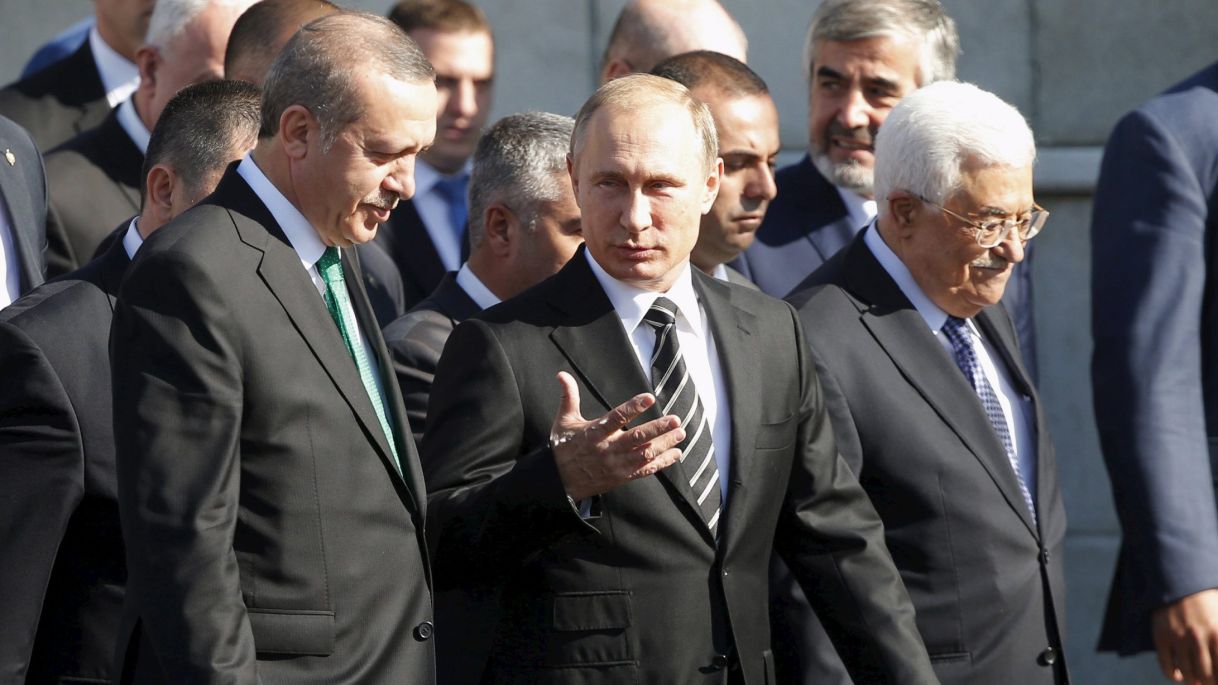
by Brad Cabana
The more tensions escalate in Syria, the clearer the picture there becomes. This week those tensions escalated dramatically with the downing of a Russian SU-24 bomber, by Turkish F16s, near the border between Turkey and Syria.
Both Russian pilots ejected alive, but one was shot to death by Syrian Turkmen as he descended by parachute. Subsequent photos circulated on social media showed Syrian Turkmen taking “trophy pictures” with the dead Russian pilot. It is this action that reflects the true nature of the Syrian conflict, and its potential reverberations.
Syria is a war of “the enemy of my enemy is my friend”, and in Syria there are many enemies. In this case Turkey is on the one hand supplying and arming Syrian Turkmen, Syrian citizens of Turkish descent, and on the other hand using ISIS to fight the Kurds. A classic example of this support was reported today as Cumhuriyet newspaper editor-in-chief Can Dundar, and Ankara bureau chief Erdem Gul have been charged with treason and espionage for filming and reporting on an intercepted arms shipment from Turkey to the Turkmen. Turkish President Erdogan promised: “They will pay a heavy price for this. I won’t let it go.”
However, Erdogan’s more dangerous comments on the arms incident carry heavy overtones: “Those trucks were carrying aid to our Bayirbucak Turkmen”. When asked about the aid convoys carrying arms to the Turkmen, he commented: “So what if they were, so what if they weren’t?”. It’s this attitude of entitlement that creates the core problem for NATO – is Turkey a responsible ally? Unfortunately, NATO seemingly set the standard for this attitude by declaring that Syrian President Assad must leave power five years ago, and then armed insurgents to get that job done. In doing so, NATO broke international law by attacking a nation that had not attacked it. There was no self-defence argument. In other words, NATO’s adoption of the “law of convenient principles” has been adopted by Turkey.
The difficulty for NATO is that the Turkish attack on the Russian SU-24 created the atmosphere for Russia to invoke self-defence measures for its forces in Syria. Within 24 hours of the downing of its plane, Russia had airlifted the world’s leading anti-missile/aircraft system (the S-400) into Syria. The S-400, along with the missile cruiser Moskva, has created an air umbrella over all Syria. Russia is now firmly in charge of who bombs in Syria and who doesn’t – should it choose to exercise that power. Russian President Putin is on the record as stating Assad need not leave power, as he was duly elected by the Syrian people, and that all armed opponents of the Assad government are terrorists – not just ISIS. The lay of the land has been set.
Where does that leave Turkey and NATO? A strong hint came today when Turkey suspended air operations near the Syrian border. Russia now considers Erdogan an enemy having “stabbed them in the back”. Outside of Germany, Russia is Turkey’s largest trading partner. In fact, Turkish food exports dramatically increased to Russia when all other European country’s products were banned. Indeed, Turkey has blown up its bridge with the Russia. That leaves it very dependent on its western allies – primarily NATO members. With that type of clout NATO should have little difficulty in constraining Turkish bravado – unless it becomes handy not to. In a war of “the enemy of my enemy is my friend”, bravado can be useful when those behind the scenes wish to keep their moral high ground, and wash their hands of it.



